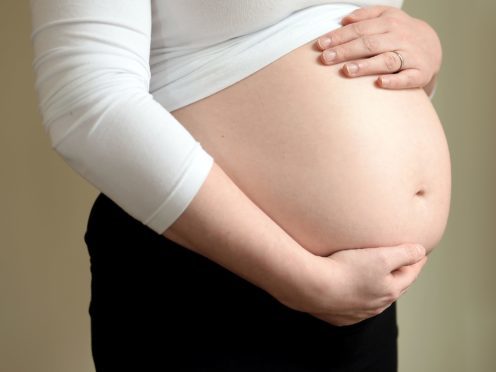A strategy aimed at reducing the risk of stillbirths remains unproven, a study has found.
Researchers in a major study found the care package may offer “marginal” benefits but the results were ultimately inconclusive.
Previous research had suggested that encouraging women to pay attention to their babies’ movements, combined with additional checks and early delivery of babies at risk, might help cut rates of stillbirth by 30%.
A research team, led by the University of Edinburgh, looked at whether a similar strategy could help to reduce rates of stillbirths in a large randomised controlled trial.
The study analysed more than 400,000 pregnancies from 33 hospitals around the UK and Ireland in what is said to be the largest study of fetal movement awareness to date.
The results pointed to a marginal drop in the stillbirth rate, from 44 in 10,000 births after standard care to around 41 in 10,000 births with the intervention.
Further analysis suggested that the intervention might prevent five stillbirths for every 10,000 babies born, but the effects were too small to prove that the care package had been beneficial.
Experts said further research is needed.
Professor Jane Norman, director of the Edinburgh Tommy’s Centre at the university, said: “The study was designed to detect an effect of 30% or greater.
“The results suggest that if there is a beneficial effect, it is much smaller than this.
“It is not possible to say with certainty that the intervention has any effect on reducing rates of stillbirth.
“The research adds further evidence to suggest that being aware of baby movements may help to marginally reduce risks of stillbirth, but it is unlikely that this strategy alone will be reliable for monitoring the wellbeing of babies in the womb. Other interventions will likely be needed to reduce stillbirth rates worldwide.”
Despite the findings, experts stress that the advice for pregnant women remains the same and they should should seek medial advice if they notice a change in their baby’s movements in the womb.
Up to half of women whose pregnancy ends in stillbirth report reduced movements of their babies in the womb in the previous week, experts said.
Jane Brewin, chief executive of baby charity Tommy’s, said: “We know that reduced baby movements is associated with the placenta not working so well and the baby’s health being compromised.
“The advice for mums-to-be remains the same – if your baby’s movements change please consult your midwife or local maternity unit immediately.”
An estimated 2.6 million babies are stillborn each year around the world. In the UK, around one in 200 pregnancies end in stillbirth.
The study, published in The Lancet, was funded by the Scottish Government’s Chief Scientist Office, and the charities Tommy’s and Sands.
